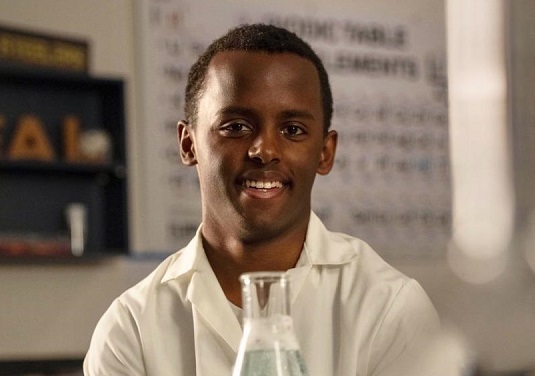
The power of youth in shaping Africa’s future
Young people across Africa are brimming with potential. They are the future innovators, leaders, and changemakers.
From the vibrant streets of Accra to the burgeoning tech scenes of Nairobi to the rich cultural mosaic of Addis Ababa, a dynamic generation pulses with untapped energy, ready to shape the destiny of this continent and, indeed, the world. But these potential risks will be squandered if we fail to provide the necessary opportunities and support for our youth to thrive.
It’s worth reflecting on the projected growth in the number of young Africans— the current number of African youth will double by 2055.
As early as 2030, Africa’s youth will make up 42 per cent of the total number of young people worldwide.
As a result, if African societies do not support them, it will not only be a significant loss for Africa but also the entire world.
In short, we may all lose out on the brilliance, creativity and ingenuity of a generation.
My journey, as a young boy from Ethiopia, captivated by the wonders of science, to developing a soap prototype designed to deliver cancer-fighting treatments, has been fuelled by an unwavering belief in the power of innovation.
This journey has reinforced my conviction that young people have the power to change the world—we just need an environment of education, economic opportunities and health care.
Passion
As the first youth honoree of the Zayed Award for Human Fraternity – a global humanitarian prize - my passion for advocating for the future of Africa’s youth has been re-energised and it is my view that the award itself should serve as a constant reminder of our shared humanity and the urgent need to invest in the next generation.
Across Africa, a vast number of young people are eager to learn, contribute, and build a better future.
However, they face significant hurdles. Many lack access to quality education, hindering their ability to develop the skills needed to thrive in the 21st century.
While primary school enrolment has expanded, access to secondary education, particularly in underserved communities, remains a significant challenge.
Furthermore, education systems often lack the resources and flexibility to provide training in vital areas such as technology, critical thinking and entrepreneurship.
We must prioritise investments in quality education that equips young people with the tools they need to succeed in a rapidly changing world.
We must also diversify educational offerings to include vocational training and skills development programmes that align with market demands and empower young people to become job creators. If we can do so, we all will stand to gain.
We must also create economic opportunities which translate learning into income, which is essential for unlocking personal opportunity and advancement, but also vital for social and economic stability.
In some parts of our continent, many young Africans are still unfortunately forced to relocate to Europe or other parts of the world in search of work, leaving their families and communities behind. This ‘brain drain’ has long-term implications for societies in Africa.
To address this, I applaud the work which is already well-advanced in Ghana and beyond to create sustainable, locally relevant economic opportunities that empower young people to build prosperous lives for themselves and their families.
Our leaders have quickly recognised the benefits of designing and enabling an environment for entrepreneurship, promoting innovation, and investing in sectors that create jobs for young people.
Health care
Given my focus as a young scientist, it is perhaps not surprising that the third area I see as critical is health, access to quality health care being fundamental to the well-being of any society.
And while progress has been made in combating infectious diseases, many young people in Africa still lack access to basic healthcare services.
Furthermore, the growing burden of non-communicable diseases, such as diabetes and heart disease, poses a new and significant threat.
We must ensure that all young people have access to the health care they need to grow up healthy and strong.
This includes investing in preventive health care, strengthening health systems, and addressing the social determinants of health.
If we can achieve those noble goals, what we will unleash is the potential of a wealth of young African innovators with the understanding and imagination to help humanity at large.
Finally, we must empower young people to become active and engaged citizens.
Their voices must be heard in the decisions that affect their lives and the future of their communities and nations.
Too often, young people are excluded from political processes and decision-making forums.
We must create spaces for youth participation in governance, promote youth leadership, and ensure that their perspectives are valued and incorporated into policymaking.
Motivation
I remain of the view that the future of Africa rests on the shoulders of its youth.
They are the inheritors of this continent’s rich legacy and the architects of its future.
We must invest in them, empower them, and create the conditions for them to thrive.
Being honoured with the Zayed Award for Human Fraternity has motivated me to continue advocating for greater investment in education, health care, and economic opportunities for young people in Africa.
I am inspired by my fellow honorees from Africa: world-renowned cardiac surgeon Professor Sir Magdi Yacoub of Egypt, community mobilizer Shamsa Abubakar Fadhil of Kenya, and advocate against extremism, Latifa ibn Ziaten of Morocco.
Together, we must work to unlock the immense potential of Africa’s youth and build a brighter future for all.
Young people must recognise our potential as changemakers and step forward with our ideas confidently.
Let us seize this moment and build the Africa we want - an Africa driven by the energy, innovation, and leadership of its youth.